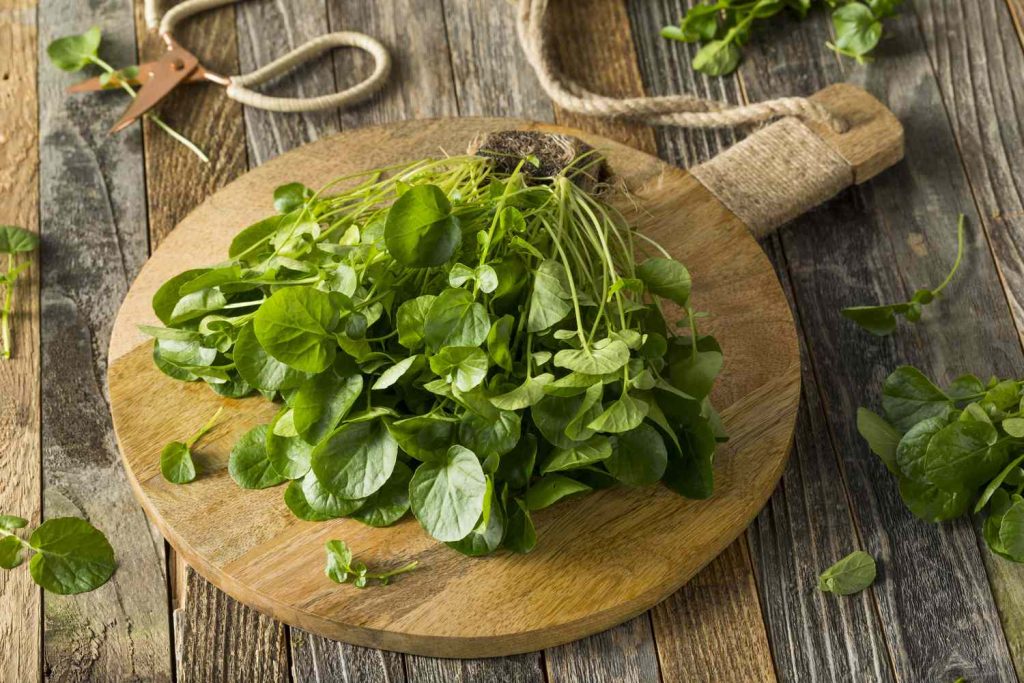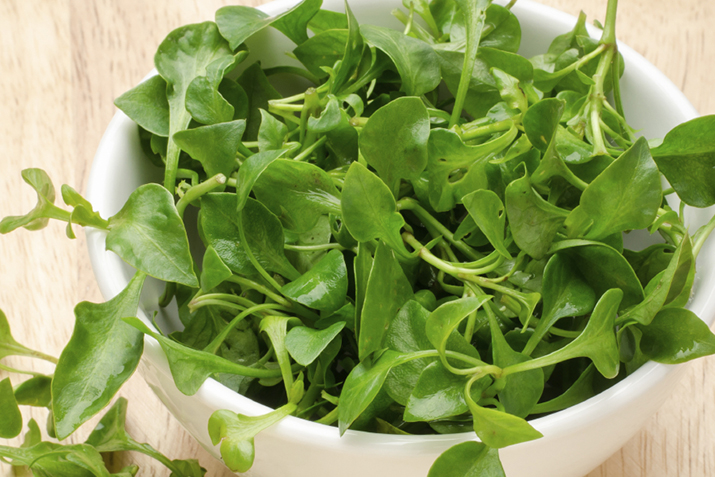Watercress
(Nasturtium officinale) is a leafy green vegetable known for its peppery flavor and numerous health benefits. It is a member of the Brassicaceae family, which includes other vegetables like broccoli, kale, and cabbage. Here are some key points about watercress:
Watercress meaning in Urdu:
Watercress is known as “Tara Mira” in Urdu.
Watercress medicinal uses:
Watercress has been used in traditional medicine for its potential health benefits. It is believed to have diuretic properties and may be used to treat urinary tract infections and kidney-related issues. It is also rich in antioxidants and may have anti-inflammatory effects.
Watercress side effects:
Watercress is generally safe for consumption when eaten in moderate amounts. However, some individuals may experience allergic reactions, digestive upset, or interactions with certain medications. If you have specific health concerns, it is best to consult with a healthcare professional.

Watercress benefits:
Watercress is highly nutritious and offers various health benefits. It is low in calories but rich in vitamins A, C, and K, as well as minerals like calcium and iron. Watercress is known for its antioxidant content, which may help protect against cellular damage and oxidative stress. It may also support bone health, eye health, and immune function.
Watercress scientific name:
The scientific name for watercress is Nasturtium officinale.
Watercress uses:
Watercress can be used in salads, sandwiches, soups, and as a garnish for various dishes. Its peppery and slightly bitter taste adds flavor to meals. It can also be used as an ingredient in smoothies or juiced.
Watercress benefits for skin:
Watercress is rich in antioxidants and vitamins that can benefit the skin. It may help promote a healthy complexion, protect against oxidative damage, and support collagen production. Watercress can be consumed or applied topically as a part of skincare routines.
How to eat watercress:
Watercress can be eaten raw or cooked. It is commonly used in salads, added to sandwiches or wraps, or used as a garnish. Watercress can also be included in cooked dishes such as soups, stir-fries, or sautés. It is recommended to wash watercress thoroughly before consuming.
Watercress benefits for hair:
Watercress is rich in nutrients like vitamins A and C, iron, and biotin, which can support overall hair health. These nutrients may promote hair growth, strengthen hair follicles, and improve the overall health and appearance of the hair.
Watercress seeds:
Watercress seeds are small and can be used for growing watercress plants. They can be sown in moist soil or in water to cultivate watercress at home.
Watercress benefits for liver:
Watercress has been traditionally used to support liver health. It contains antioxidants and nutrients that may promote liver detoxification and overall liver function. However, further research is needed to fully understand the specific benefits of watercress for liver health.
Watercress dangers:
Watercress is generally safe for consumption. However, wild watercress grown in polluted water sources may pose a risk of contamination by bacteria or parasites. It is recommended to obtain watercress from trusted sources or cultivate it under controlled conditions.
Watercress disadvantages:
While watercress offers numerous health benefits, some individuals may find its taste too strong or its texture unappealing. Additionally, individuals with certain medical conditions or specific dietary requirements may need to moderate or avoid watercress consumption. Consulting with a healthcare professional or nutritionist can provide personalized advice.
Watercress advantages:
The advantages of watercress include its high nutrient content, particularly vitamins and minerals, and its potential health benefits. Watercress is also a versatile ingredient that can be used in various culinary preparations.
What is watercress good for:
Watercress is good for overall health and well-being due to its nutrient density and potential health benefits. It can support bone health, eye health, immune function, and provide antioxidantprotection.
Is watercress good for diabetics:
Watercress is a low-calorie, nutrient-dense food that can be a healthy addition to a diabetic diet. It is low in carbohydrates and has a low glycemic index, which means it has a minimal impact on blood sugar levels. However, individual dietary needs may vary, and it is important for diabetics to monitor their blood sugar levels and consult with a healthcare professional or dietitian for personalized advice.

